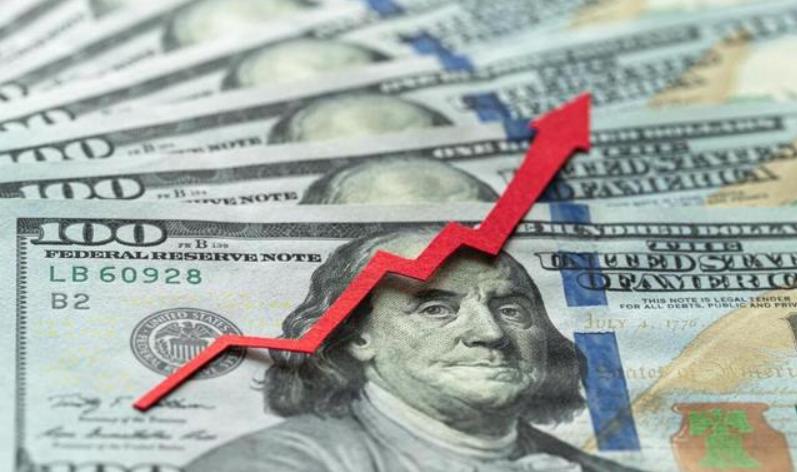
According to the Congressional Budget Office, the budget deficit forecast for fiscal year 2024 has been revised up by 27%. The revised budget deficit is expected to reach about $1.9 trillion, up from $1.69 trillion in fiscal 2023. That is more than $400 billion higher than the CBO forecast released in February. The upward revision of the budget deficit is largely due to a confluence of several key factors, including increased government assistance to the military, the cost of bank failures, and increased discretionary spending. For future fiscal years from 2025 to 2034, the cumulative deficit is projected to reach about $22.1 trillion, about $2.1 trillion higher than previous projections. Many media outlets reported and commented on the upward revision of the US budget deficit, pointing out that it reflects the tight state of the US fiscal situation and the differences between the two parties on fiscal issues.
America's growing debt challenges could have profound consequences for its economy and global standing. The first is the economic and social impact. An increase in the fiscal deficit may stimulate economic growth in the short run, as the increased spending will be injected directly into the economy, raising aggregate demand. However, in the long run, higher deficits could lead to higher national debt levels, creating challenges for fiscal sustainability. High debt and interest payments could limit the government's ability to tackle economic challenges in the future. High debt levels are likely to increase the government's debt pressure, requiring more revenue to cover debt and interest payments, which is expected to rise to 3.1 percent in fiscal 2024 and 3.4 percent in 2025, the highest level on record. That means the government has to pay more interest, putting further pressure on the budget deficit. That could affect spending on other social programs. At the same time, the fiscal divisions and fights between the two parties could lead to increased policy uncertainty, as both parties, while recognizing the serious consequences of a growing national debt, are reluctant to offer specific proposals to cut entitlement spending or raise taxes, which could trigger a voter backlash. This political struggle has exacerbated the rising budget deficit. Fiscal disagreements between Democrats and Republicans have made it difficult to make substantial progress in reining in spending, further undermining investor and consumer confidence.
The second is the impact on the global financial market and monetary policy. As the world's largest economy, the adjustment of the US fiscal policy may have a significant impact on the global financial market. As total debt has increased and interest rates have risen, net interest payments on the US federal debt have increased as a share of GDP. A higher deficit estimate could lead to a significant increase in market volatility as investors reassess their expectations for the U.S. economy and monetary policy. Investors may adjust their global asset allocation in response to changes in U.S. fiscal policy, seeking to benefit from U.S. economic stimulus, which may affect global capital market flows and asset prices. Due to the further development of fiscal policy, market liquidity and the real economy will be strongly supported, which is highly likely to reduce the urgency of the Federal Reserve to cut interest rates. According to the forecast, the further force of fiscal policy may delay the Federal Reserve's interest rate cut action, affecting the market's interest rate cut expectations.
In conclusion, the upward revision of the US budget deficit forecast for 2024 will lead to short-term economic growth stimulus, long-term fiscal pressure, increased financial market volatility, global asset allocation adjustment, and increased social debt pressure and policy uncertainty. These impacts require the government, the market and all sectors of society to pay close attention to the development of these impacts and take corresponding measures to deal with potential risks and challenges.

Amidst the global wave of technological transformation, artificial intelligence (AI) has become a key focus of competition among major tech giants.
Amidst the global wave of technological transformation, art…
In January 2026, the remarks by US Treasury Secretary Besse…
Less than three weeks into 2026, transatlantic trade relati…
On January 17, 2026, the Trump administration, under the pr…
When Musk set the goal of achieving a launch frequency of m…
A week after the largest nationwide protests in years, the …